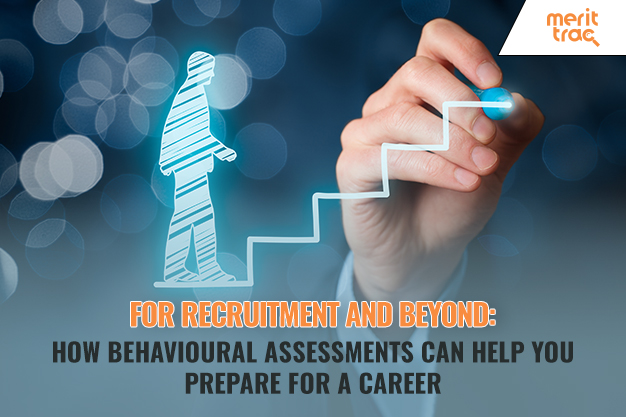
For Recruitment and Beyond: How Behavioural Assessments Can Help You Prepare for a Career
Date: 24/12/2019 | Posted by: Meghana Jitendra, Psychometrician | Category: Behavioural Assessment , Corporate
Most job applicants would agree that they have undergone some kind of behavioural assessment at some point during the selection process. This isn’t surprising; personality and other psychometric tests have become a part of the recruitment and selection process in many organisations.
So, what kind of preparation do you do, as job applicants? Refresh your memory of theories and concepts, read up some case studies, take practice tests for reasoning and other cognitive tests, browse through the company’s website and white papers, work out some problems and exercises in your domain and so on. Most of the job applicants don’t bother to prepare for the behavioural aspects that would be gauged in different ways and through different approaches, be it psychometric assessments, group discussions or interviews. Many fail to understand that the behavioural/personality attributes are often deal-breakers in the selection process. How, then, does one prepare for assessments of behaviour, attitudes and personality?
The idea of practice tests may apply here as well, but in a different sense. Job applicants can take personality and other behavioural assessments before the recruitment process, (or even before applying for a job opening!)
The fundamental aim of any behavioural assessment is to provide reliable and valid insights about the test taker. These insights are being used by organisations to make HR decisions, but the utility of behavioural assessment is not limited to just that. Why shouldn’t test takers themselves gain reliable and valid insights about themselves? Taking behavioural and personality assessments is beneficial beyond one’s job hunt. Psychometric assessments provide valuable insights about oneself, helping in increasing one’s awareness of one’s own psychological attributes, recognize strengths, as well as acknowledge weaknesses and identify areas of improvement. And enough has been said and proven about the importance of self-awareness, especially in the context of work and careers. You can make conscious efforts to build on your strengths and mold yourself to meet your aspirations.
Psychometric assessments also help identify specific behaviours and examples that illustrate presence of a set of traits in the test taker and how it is reflected in their actions and experiences. You can talk about these examples of behaviours in your job interviews, demonstrating how your personality traits would enable you to perform better in the given role and/or context. This would help you articulate yourself better, rather than talk about qualities you think you have or picked up from the internet when you searched “What to say at job interviews”.
Many recruiters use behavioural assessments to examine the person-role fit. Well, job applicants can do the same! You can take psychometric assessments and gauge for yourself if the role description and requirements match your personality, motivations, aspirations and so on. Jobs are mutual exchange between the individual and the organisation anyway; both parties should review the ‘fit’. Examine if you fit the role and if the role fits your expectations, because job applications require genuine effort and should, thus, be worth it.
The word ‘test’ is not usually associated with pleasant emotions, and this is true in the case of psychometric ‘tests’ as well. Being evaluated can be stressful for some people. Taking behavioural assessments before going through the selection process might prove to be useful in reducing test anxiety. One can familiarize oneself with how behavioural assessments generally are, the question patterns and the kind of insights they provide.
After all, preparation helps.












 Sales Hotline: USA: +1 646 916 0939 / Others: +91 80619 14700
Sales Hotline: USA: +1 646 916 0939 / Others: +91 80619 14700


